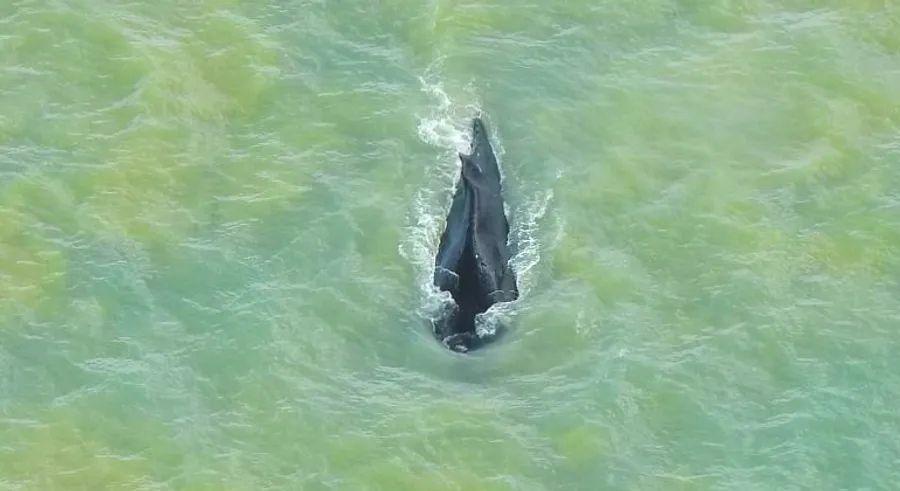A humpback whale has successfully escaped a crocodile-filled river in Australia, swimming to freedom after being trapped for weeks.

Authorities confirmed on Monday that a humpback whale has finally swum out of a crocodile-infested river in Australia, where it had been stranded for two weeks.
The incident began when three humpback whales entered the East Alligator River in Kakadu National Park. The whales were first spotted a week later, on the previous Tuesday, as reported by a park spokeswoman from Australia's Northern Territory.
While the other two whales were believed to have left the river, one remained stranded in the crocodile-rich waters.

Feach Moyle, the manager of the park's Country and Culture Section, expressed his joy in a statement on Monday, saying, 'After tracking the whale over the weekend, we’re thrilled it has made its way out of Kakadu's East Alligator River and into Van Diemen Gulf.'
'The whale escaped during the weekend's high tides, and we’re relieved it seems to be in good health with no apparent issues,' Moyle continued, praising the joint effort of state, local, and indigenous authorities in resolving this rare situation.
Dr. Carol Palmer, a senior scientist for the state government, hailed the whale’s escape as 'wonderful news.'
'It’s been a fantastic collaboration with Kakadu staff and expert scientists to explore ways to help the whale, but I’m thrilled it found its own way out,' Palmer added. 'This is the best possible outcome we could have hoped for.'

According to the national park, the whale likely became stranded due to confusion during its migration. The park stated, 'To our knowledge, this is the first time something like this has occurred.'
The park expressed concern about several potential risks, including crocodiles, the threat of a boat collision, or the possibility of the whale being unintentionally pushed further up the river.
Despite these concerns, the park confirmed that the whale did not seem to be in any distress, according to their update last week.
Saltwater crocodiles are ambush predators capable of attacking and killing humans. Despite their name, they can be found over 100 miles (161 kilometers) inland in freshwater areas, far from the coast.
According to park guidelines, these crocodiles can remain submerged for extended periods, moving with incredible stealth and blending into their surroundings. They are capable of reaching speeds up to 40 feet (12.1 meters) per second in short bursts when capturing prey.
From April to November each year, Australia's eastern coast sees the migration of humpback whales. These whales spend their summers feeding in Antarctic waters before migrating north to sub-tropical waters to mate and give birth. The majority of humpbacks in Australia travel back to the Southern Ocean between September and November, as reported by Australia's environmental ministry.
Kakadu, Australia's largest national park, is recognized on the UNESCO World Heritage List for its exceptional natural and cultural significance, as stated on the park's official website.

1

2
3

4

5
Evaluation :
5/5